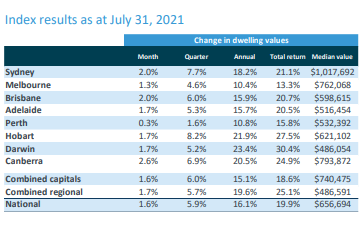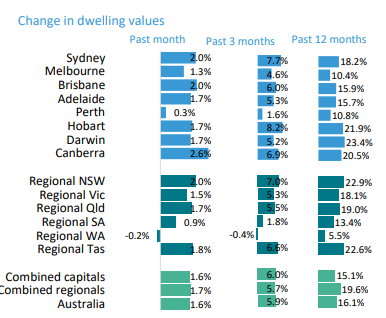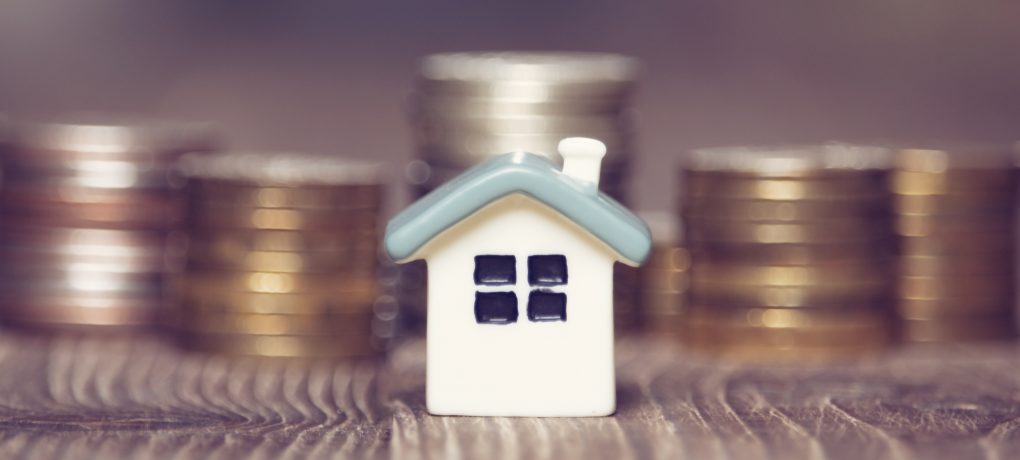August 2021: Rate Decision & Analysis.
The Reserve Bank of Australia ("RBA") left the official cash rate unchanged at 0.10%.
Obviously things have changed quickly over the last month, this is testing the agility of both people and markets. To the numbers; according to AMP Capital data, the current restrictions across the nation are expected to cost the economy in region of $14 billion. This will mean an expected GDP contraction of 2-3% for the September quarter.
Despite the fear of the economic consequences of a prolonged Sydney lockdown, there is some optimism about a quick bounce back based on the experience of the Victorian recovery once restrictions were lifted.
This said, share markets, exchange rates, interest rates are all over the place. If it is gloom and doom, property purchasers haven't got the message (see Property below). Conversely, in terms of sentiment, the ANZ-Roy Morgan Consumer Confidence Index has naturally taken a decent fall.
The RBA will need to remain calm, in considering interest rate settings and quantitative easing. There needs to be some long-term leadership of what is actually happening, as the short term data makes a nonsense of school boy economics.
Market awash with Cash
The unprecedented volume of cash in the system has seen demand for cash, as evidenced by interbank transfers, drop to record lows.
The major banks have announced share buybacks, as they are estimated to have approximately $35 billion in excess capital. Setting the scene for big buybacks in the weeks ahead. This has the objective of total shareholder return by reducing the number of shares on issue.
Direction for Local Interest Rates?
The upward momentum for interest rates - one I have been talking about for a few months, is on hold for a moment.
The Australian dollar has also done a power of work for the RBA. As it has depreciated substantially, (see exchange rates) this will soften the need to continuously stimulate the economy and take some pressure off the Central Bank to provide more expansionary monetary policy.
Money Markets
The rising number of the COVID Delta variant cases certainly sent a panic through bond markets.
Bond markets can take a longer term view than equity market, so this correction is presenting a view that the Delta strain is going to have lingering impacts on the economy.
With short term money having nowhere to go, the dramatic fall in the 10 year rate has flattened the yield curve substantially as below.
| Month | Cash Rate | 90 Day Bill Rate | 10 Year Bond |
| September 2020 | 0.25% | 0.12% | 0.84% |
| October 2020 | 0.25% | 0.10% | 0.90% |
| November 2020 | 0.10% | 0.05% | 0.81% |
| December 2020 | 0.10% | 0.05% | 0.90% |
| February 2021 | 0.10% | 0.03% | 1.09% |
| March 2021 | 0.10% | 0.04% | 1.69% |
| April 2021 | 0.10% | 0.05% | 1.74% |
| May 2021 | 0.10% | 0.04% | 1.65% |
| June 2021 | 0.10% | 0.04% | 1.59% |
| July 2021 | 0.10% | 0.07% | 1.48% |
| August 2021 |
0.10% |
0.05% | 1.12% |
This continued cycle of low yields has only added to the appeal of equities and properties, with investors remaining undeterred by any deteriorating outlook for growth as they chase better returns.
Property
The general economic uncertainty has not extended into the property market.
In the residential market, data from CoreLogic listed below, Australian housing values increased a further 1.6% last month, with the latest rise delivering an overall 16.1% increase for the past twelve months.

Annual returns are obviously strong, early data shows a current month with a running rate that is a little lower than previously. For context, the last 12 months growth is the fastest annual growth in more than 17 years.

Industrial Property
The demand for warehouse space continues to increase. Businesses are looking to grow on the back of e-commerce, with a need to increase storage capabilities that generates a more nimble approach to inventory management.
Commercial Property
Strong office results are being obtained right across Brisbane, Sydney & Melbourne. This is also coupled with expectation that a lot of workers are keen to get back to the traditional office environment.
JLL’s latest Worker Preference Barometer research supports this. It showed that employees now want to work in the office three days a week (up from two) with an increasing number of workers are feeling isolated and needing human connection.
There is also a rise in the number of people who said they didn’t want to work from home at all.
Currency
Another busy month with currencies. Previously, there was some bullish commentary here that our dollar could hit US80c and over, now many experts are predicting that the Australian dollar could fall below US70¢ for the first time in a while. (See Bloomberg below)
The correction comes amid increasing fears that global growth could be stalled by COVID's Delta variant, and also a sudden softening in iron ore prices as China pulls back on its requirements.

This relative weakness won't be of any concern to the RBA as it provides more accommodating trading conditions at a global level.
Until next time.

